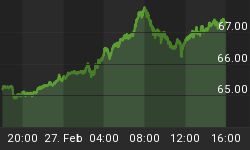In the aftermath of several major online breaches and scandals—plus the likely hundreds that have gone unreported—both state and federal lawmakers are pushing for tighter privacy laws. But they might get tripped up by a public that isn’t concerned enough to actually pay for their privacy.
Though the breaches have brought data security to the forefront of the government’s attention, not much has been done to actually ensure that companies are accountable to the public when it comes to how security concerns are disclosed. That’s likely because the public isn’t making as much of an issue of it as it should. Indeed, it would seem that everyone’s given up on privacy because the alternative is … less convenient.
Since 2017, Congress has been working on a Data Security and Breach Notification Act, which would create the first federal standard for penalizing companies that fail to disclose a breach.
However, an alliance of more than a dozen advocacy groups is now going a step further and calling for the creation of a new data protection agency. Such a new agency would seek to replace the Federal Trade Commission as the protector of our privacy because they feel the FTC has failed in this mission.
“The U.S. needs a federal agency focused on privacy protection, compliance with data protection obligations, and emerging privacy challenges,” the alliance said.
The framework announcement came days after Sen. Marco Rubio proposed new data privacy legislation, the American Data Dissemination Act, aimed at protecting the personal data of American consumers which is piling up in the hands of tech giants.
But having the government in charge might prove complicated and slow. With that in mind, the private sector is practically foaming at the mouth to make money off protecting our data from them. Related: Key Indicators Suggest A Recession Is Closer Than We Thought
A study from mid-2017 by Grand View Research said that by 2025, the data protection and recovery solution market is expected to reach $14.1 billion. In 2016, that market size was estimated at $4.70 billion. In 2019, with all the new breaches, one imagines it may be much greater.
However, here’s the rub: Even though a vast majority of Americans would like online services to collect less of their data, fewer than 25 percent are willing to actually pay for privacy protection. Fair enough because having to pay to protect your data is a bit of a protection racket. For instance, consider this: Tech companies get to play both sides of this fence, selling consumers’ data and then selling them a service to protect them from selling it.
A survey published by the non-profit Center for Data Innovation found that 26 percent of U.S. citizens would be willing to pay a monthly subscription fee in exchange for privacy. But should they, really?
Data is the new diamonds, and it’s all vulnerable, whether the end game is celebrity gossip, political capital or a pile of making cash of the personal details of the masses to enable product targeting by major brands.
According to a recent report from the BBC, some 200 tech companies surveyed believe that data will be main topic this year.
In U.S., since 2005, there have been almost 8,200 data breaches exposing more than 1.05 billion records. In 2017 alone, there were a total of 1,579 data breaches, a 45-percent increase over the previous year. It was a stellar year, seeing the personal information of every US voter leaked; the Social Security numbers of more than a hundred million Americans stolen; and a nice collection of personal data exposed by hacks on retail businesses.
Last November, hackers gained access to the private messages of nearly 120 million Facebook accounts and had (at the time) already published such messages from 81,000 accounts, offering to sell access for 10 cents per account.
Something’s got to give, but it’s a circular argument because the public doesn’t want to pay the piper on this one.
By Michael Kern for Safehaven.com
More Top Reads From Safehaven.com
















